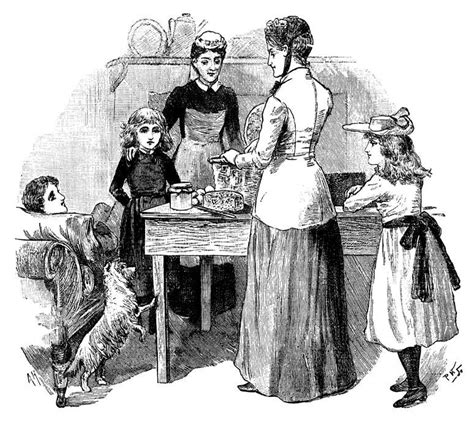Introduction

The cult of domesticity was a social ideal popular in the 19th century that emphasized the virtues of women as wives and mothers. It prescribed that women’s proper role in life was to maintain a harmonious and pious home for their husbands and children. This ideology shaped the lives of countless women during this period and had a profound impact on American society.
Origins and Development
The cult of domesticity emerged from a complex interplay of religious, social, and economic factors. Religious revivalism in the early 19th century promoted the view that women were inherently more pious and moral than men. This belief was reinforced by the rise of sentimentalism, which glorified the virtues of domestic life and the importance of family bonds.
The Industrial Revolution also played a role in shaping the cult of domesticity. With men increasingly working outside the home in factories and offices, women were expected to devote themselves to domestic tasks. This division of labor reinforced the idea that women’s true calling lay within the home.
Key Features
The cult of domesticity emphasized several key virtues and behaviors for women:
- Piety: Women were expected to be deeply religious and to follow the teachings of their church.
- Purity: Women were held to a high standard of sexual purity and were expected to preserve their virginity until marriage.
- Submissiveness: Women were expected to be subservient to their husbands and to obey their authority without question.
- Domesticity: Women’s primary responsibility was to maintain a clean and orderly home, cook and clean, and raise children.
- Sentimentalism: Women were encouraged to express their emotions freely within the context of the family.
Impact on Women
The cult of domesticity had a significant impact on the lives of women:
- Limitations on Education and Employment: Women were discouraged from pursuing formal education or careers outside the home.
- Isolation and Dependence: Many women were confined to their homes and became isolated from the outside world. They relied heavily on their husbands for financial support and social status.
- Reproductive Control: Women were expected to bear children and to raise them according to the prevailing social norms.
- Domestic Violence: The cult of domesticity often perpetuated violence against women, as husbands were seen as having the right to discipline their wives.
Impact on Society
The cult of domesticity also shaped American society as a whole:
- Family Structure: The cult of domesticity reinforced the traditional family structure, with husbands as the breadwinners and women as the homemakers.
- Social Hierarchy: The cult of domesticity helped to maintain social hierarchy by emphasizing the importance of traditional gender roles.
- Cult of True Womanhood: The cult of domesticity became synonymous with the cult of true womanhood, which idealized women as pure, pious, and devoted to their families.
- Social Control: The cult of domesticity served as a means of social control by regulating women’s behavior and reinforcing their subordination.
Resistance and Reform
Despite its widespread acceptance, the cult of domesticity faced resistance from some women. In the late 19th century, the suffrage movement and other women’s rights organizations challenged the prevailing social norms and advocated for greater opportunities for women.
These efforts gradually led to reforms that expanded women’s access to education, employment, and political participation. By the early 20th century, the cult of domesticity began to decline as women gained more control over their own lives.
Conclusion
The cult of domesticity was a dominant social ideal in the 19th century that shaped the lives of countless women and influenced American society as a whole. Its emphasis on piety, purity, submissiveness, domesticity, and sentimentalism reinforced traditional gender roles and perpetuated the subordination of women.
However, the cult of domesticity also faced resistance and reform, which ultimately led to a shift in social norms and greater opportunities for women. The legacy of the cult of domesticity is complex and multifaceted, but it remains an important reminder of the challenges and triumphs faced by women in American history.
